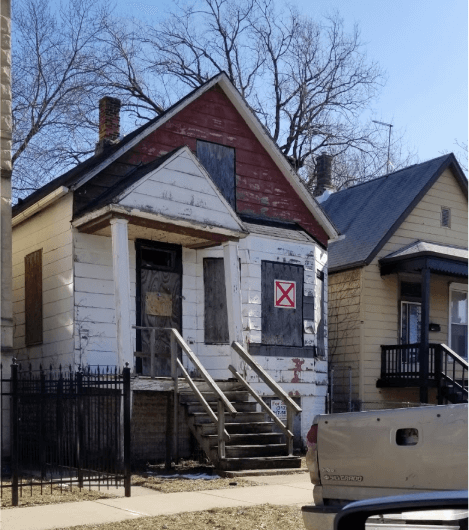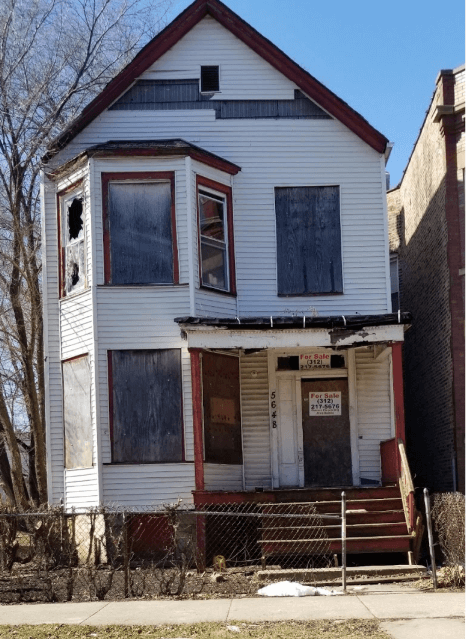febrero 28, 2020 by ConTextos
How long can you keep this up for?
“How long can you keep this up for?”
Dimitri asked me as we drove South from the courthouse to Englewood. We’d spent the morning in courtroom 304, hoping an Author who’d been taken in to Jail while on electronic monitoring would be reinstated on house arrest.
Court starts at nine, the judge showed at up 10:30, Michael approached the bench in the khaki jail uniform fairly early on, but took a pass since neither his lawyer, nor the judge, nor the States Attorney had any information about why Michael had been locked up. No notice of a violation.
Me and Dimitri, Michael’s girlfriend and her cousin listened to the other cases, exchanged stories and frustrations, waiting for his case to be called again. I went in and out with his lawyer, who is so committed to trying to get Michael a fair shake. We called the Sheriff who oversees his movement, they didn’t have any information. Sat around and waited some more.
“It’s so crazy that it’s so casual, and there’s so much at stake,” said Dimitri at one point, watching the inner workings of the courtroom. Later, we would laugh sarcastically about the piles of folders and the constant sound of the date stamp, all so analog in this digital world. Ultimately, the information came in, there were violations on his movement, meaning Michael had left his home during times not allowed by his house arrest, and the judge sent him back to Jail with a court date about a month from now to see where the case stands.
Dimitri and I were both down, worn out by the stress of waiting and waiting and waiting in Court. As we drove, I unfurled my layers of frustration. The previous night, I went with ConTextos’ staff, board and authors to an event honoring David Rubenstein’s support of the Lincoln Library. Mr. Rubenstein generously donated the money to the Library of Congress last year that resulted in ConTextos getting awarded for excellence in international best-practice in the work of literacy. While we were at the Library receiving the award, one of the board members who was on the selection committee pulled me aside and whispered: “the choice was unanimous for ConTextos. The healing power of writing is so compelling…”
The dinner started with a video montage of important people speaking highly of Rubenstein. Yo-Yo Ma was first. And then an old white man and another old while man and so many old white men. There were two series of montages, so many people praising Rubenstein’s great work in philanthropy, to help support the preservation of history.
I complained to Dimitri that I thought Rubenstein deserved better. “Haven’t these people been reading the news?” I asked. “Rich white men shouldn’t be the only ones talking…” In fact, during the dinner I scooted up to Rubenstein’s table. I introduced myself, thanked him for the support of our prize, and told him, “If I may be so bold, I think you deserve to also be thanked by the young people of color who you have helped support. If you ever want that, I hope you’ll reach out,” and I handed him my card.

Dimitri and I snaked through the Southside. “Can you believe this looks like this?” I shuddered. Driving through parts of Englewood and Auburn Gresham are always so frustrating: so much abandonment and decay. So unnecessary. “Last week, at City Club, in a presentation about violence reduction, the head of U of C Urban Labs started off by talking about green space, about turning around abandoned lots… and it’s still like this. My mom was working on turn-around lots in the early ‘90s. What’s so hard?” I asked to no one in particular, trying to imagine if this was my everyday surroundings.
“It’s so frustrating,” I whined. “Last night, listening to those speeches, I just got so mad at ‘the patriarchy.’ And this morning in that courtroom, it’s just so obvious. Every single person who stood before the judge today was black or brown…”
“But I was impressed by how diverse the people in the courtroom were,” replied Dimitri, referring to the judge and lawyers and sworn-ins and note-takers. “They looked much more like the City of Chicago.” And we agreed… that those working within the legal system looked like the diversity of our City, but those before the court looked like only specific neighborhoods.

“Sometimes, I don’t know what we’re doing,” I moaned. The problems feel so entrenched.
“So how long can you do this?” asked Dimitri. He was a classroom teacher for 13-years, and still carries caseloads of students who are well into different areas of their lives. He’s trying to help a previous student, now 19-years-old, get a job. And on the way to court in the morning, he had shared stories of one student who he’d taught in 2nd and 5th grades; that student had been shot on two different occasions during his grade-school years. Dimitri is a great teacher, loves those students, and talks often about feeling burnt out, about not ever being able to do enough. But he keeps doing more and more. And this horizontal step from the classroom to Authors Circle doesn’t at all lower the personal commitment. The bar just keeps rising.
I told Dimitri how, after dinner the previous night, I met the man I’ve been dating for a drink. He was in a bad mood. I had recommended some Authors to paint his house. After some weeks on tough logistics, they completed the job well. He had been out of town for the weekend, and when he came back, his house had been robbed and it looked like it was someone who had been there before, who had intentionally left a window jimmied for easy access.
“Of course, he thinks it’s our Authors,” I said. “And it might be. It’s just so fucking frustrating. All these second chances, and it’s still not enough…”
I don’t know if Authors stole. I don’t know for sure what Michael’s violations are. But I know this work isn’t linear and that we tend to hear the bad stories because when things are fine, Authors are independent and on their own.
“We broke up,” I explained. “I don’t think he blames me, but I was just so mad at everything around me. I took it out on him.”
And then I told Dimitri, “This is the only thing I know. I don’t know how to just have a job. I do work that inspires me, that motivates me. I’m like you– I’m committed to the people we’re working with. I can’t imagine any other kind of way. We’re all like that, in Chicago and El Salvador– we do this work because we have to.
“Of course it’s frustrating. We make so many mistakes. It’s so hard to make change. And the money part, worrying about salaries, that part sucks.”
“And you have to worry about money in a bunch of ways,” Dimitri said, referring to a comment I’d made earlier about being a single mom. About how I get resentful sometimes at her daycare to see two-parent families that can split the bills. I think so often about our Authors–in Chicago or El Salvador– and what it’s like to not have enough. Last week, when my daughter Ezra was sick, I spent $80 on medicines that she refused to take. I was furious. But imagine if those $80 could break me…
“But I usually get more frustrated with the funders than the Authors,” I explained. It’s fighting for the money while constantly learning about how to be a better advocate. It’s well-intentioned funders that accidentally set perverse incentives, so organizations feel pressured to demonstrate numbers reached, even while sacrificing the quality of impact.
There was no Case Manager for Michael at his court date. Michael is a part of cohorts and programs that are well-funded and well-meaning. They didn’t come to support him. They knew he wasn’t doing what he should’ve been doing, never bothered to create a relationship with the Sheriff who supervises his movement. I could’ve / should’ve done that– I’ve worked with the Sheriff’s office many times about Michael’s movement; he produces our podcast and is approved to come to our office every Friday. I knew he wasn’t attending his other programs with fidelity. I could have checked in. I remind myself: at ConTextos, we’re not case managers. That’s not our job. It is somebody else’s job and they didn’t do it. But we could have, should have gone beyond our mandate.
I’m not taking away that the responsibility is ultimately Michael’s. He’s an adult, he knows right from wrong, he knows what’s at stake. But there are programs in place to support him because obviously, he isn’t making the best choices, which is why he’s in this situation in the first place…
“Lately, I’ve been tired…” I confessed to Dimitri. “It’s not the work, though. It’s how the work flows into my personal life. I got mad last night because I didn’t feel cared for by this man I’ve been seeing. I haven’t shared much with him about how frustrating it is to keep trying and for every step forward, for every success, there’s so many hiccups. It’s hard to listen to people’s problems, or even share my own, when we’re surrounded by people with such big problems every day.”
Dimitri nodded, mocking, “I’m so sorry about your colleague putting fish in the microwave.” We groaned about the complaints of what we imagine in a regular work day.
“And we’re not even that close to the epicenter,” I reminded myself. So many people in this work around justice, trauma, violence, are so much closer to the streets and the cells and the hospitals and the caseloads. “We just get to hear a lot of stories…”
“I joke a lot about starting a dry-cleaner,” I tell Dimitri. “It seems pretty cut and dry. Take clothes, clean clothes, give ‘em back…
“But I like this work. Our schedules are kinda flexible. I can do yoga some mornings. I spend time with people that are interesting and interested.
“Tomorrow will be better. Sometimes, I just have to wallow.”
And now tomorrow is today. And I’m still not going to get back together with that man. And Michael is still locked up. And I’m still feeling a little sad and a little tired.
And the question isn’t how long can I do this. Or we do this. Because I think I those of us who need to do this kind of work couldn’t do anything else. We can keep this up forever.
I think the question is: How long will this kind of work need to be done? The roots of the trauma and marginalization and exclusion that we are privy to are so deep, so entrenched. So hard to not eradicate, but heal.
The roots stay the same, but the work keeps evolving. And new stories keep emerging. And new success stories keep growing. And no matter how much the path isn’t linear, it demands that we’re always moving forward.
*Names have been changed to protect the privacy of individuals mentioned
Recent Posts

My Life by David J
I’m just waiting on my big chance to perform the best show for the rest of my life with freedom and happiness. My time will…

Can You See Me?
Can you see me? — on view at Weinberg/Newton Gallery, Arts + Public Life and SkyART from October 14 to December 17, 2022 — challenges viewers to reflect…

Remember when it was called Corona?
This report captures a snapshot of the work we have accomplished during 2020-2021, The Covid Years.


